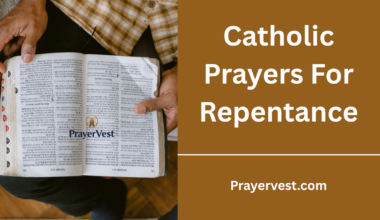Government has always been essential to forming societies, maintaining law and order, and affecting interpersonal relationships. Scripture constantly reminds us that God is ultimately sovereign over all rulers and nations, even though human systems of authority can differ from place to place and era to era.
The Bible provides divine guidance on how citizens should react, how leadership should operate, and how justice should be maintained in accordance with God’s moral principles. Examining scriptures about government reveals God’s desire for harmony, responsibility, and lawful governance.
God appoints leaders to uphold righteousness, defend the weak, and curb evil throughout Scripture. The Bible affirms that the establishment of laws reflecting justice and truth is the purpose of governing powers.


However, it also highlights the negative effects of corrupt leadership, which occurs when people in positions of authority act unfairly or disobey God’s instructions. By analyzing these verses, believers can learn how to discern the type of governance that God values and how leaders are expected to serve with wisdom, humility, and integrity.
These government-related Bible texts also address each believer’s social obligations. While always putting obedience to God above all else, we are required to pray for leaders, submit to lawful authority, and support the welfare of our communities. God’s Word gives us confidence, consolation, and direction whether we are dealing with difficult systems or righteous leadership. Scripture serves as a reminder that God’s kingdom is superior to all earthly governments and that His will will always triumph, even in the face of political unpredictability.
40 Inspiring Bible Verses About Government (2026)
1. Romans 13:1
“Let everyone be subject to the governing authorities, for there is no authority except that which God has established.”
Paul establishes the foundational Christian view of government: all earthly authority ultimately originates from God. This passage reminds believers that submitting to rightful leadership is part of honoring God’s order in society. Government structures exist not by accident but by divine intention, promoting justice and civility.
2. Proverbs 8:15
“By me kings reign and rulers issue decrees that are just.”
Here, wisdom is personified as the source of all righteous leadership. The verse emphasizes that when leaders govern through divine wisdom, justice prevails. Governmental authority should be rooted in godly understanding and moral integrity rather than personal power or ambition.
3. 1 Timothy 2:1-2
“Pray for kings and all those in authority, that we may live peaceful and quiet lives in all godliness and holiness.”
Paul urges believers to intercede for governmental leaders. Rather than complaining or rebelling, Christians are called to support their leaders through prayer so that peace and stability can prevail. God desires harmony in society, and prayer is a vital part of that process.
4. Titus 3:1
“Remind the people to be subject to rulers and authorities, to be obedient, to be ready to do whatever is good.”
This verse links obedience to authorities with readiness to do good. Government is intended to promote morality, and believers are encouraged to be model citizens who actively contribute to the well-being of their communities.
5. Daniel 2:21
“He changes times and seasons; he deposes kings and raises up others.”
Daniel acknowledges God’s sovereign power over political transitions. Leaders come and go, but God remains in control. This truth offers believers confidence and peace even when leadership shifts or the nation faces uncertainty.
6. Jeremiah 29:7
“Seek the peace and prosperity of the city to which I have carried you into exile.”
God commands His people to work toward the flourishing of the society around them—even under foreign rule. Civic responsibility is not dependent on ideal conditions; believers are called to pray and labor for the common good wherever they reside.
7. Psalm 22:28
“For dominion belongs to the Lord and he rules over the nations.”
This verse affirms that God holds ultimate global authority. While nations have rulers, sovereignty belongs to God alone. Governments must recognize His supremacy to govern righteously and effectively.
8. Deuteronomy 16:18
“Appoint judges and officials for each of your tribes… and they shall judge the people fairly.”
God instructs Israel to establish a system of governance rooted in fairness and accountability. Justice is the foundation of righteous government, and leaders are responsible for maintaining equity without corruption or favoritism.
9. Isaiah 1:17
“Learn to do right; seek justice. Defend the oppressed.”
This verse is a divine mandate for ethical leadership. Governments exist not only to maintain order but to uphold justice as a central priority. Righteous governance requires proactive defense of the vulnerable and the correction of unfair systems that exploit the weak. When those in authority ignore injustice, oppression grows; but when leaders champion fairness and dignity for every citizen, they reflect the heart of God in public life.
10. Psalm 72:11
“May all kings bow down to him and all nations serve him.”
This passage highlights God’s supreme authority over global leadership. No matter how powerful a ruler may become, they remain under God’s dominion. Governments are not autonomous—they are accountable to God’s standards of righteousness. Nations flourish when leadership recognizes that power is a stewardship granted by God and should be exercised with humility and reverence.
11. Romans 13:4
“For the one in authority is God’s servant for your good.”
Government leaders are described as God’s servants with a sacred responsibility: to work for the well-being of the people. Their authority is not for self-interest but for promoting security, enforcing justice, and encouraging what is right. When leaders forget this, tyranny results; but when they embrace their calling as servants, citizens experience peace, stability, and protection.
12. 1 Peter 2:13-14
“Submit yourselves for the Lord’s sake to every human authority…”
Peter stresses that respecting authority is an act of honoring God’s design. Governments are tools in God’s hands to restrain wrongdoing and support righteousness within society. Submission does not mean blind obedience—it means recognizing the value of law and order. Healthy civic cooperation leads to societal harmony and reflects godly character.
13. Proverbs 29:2
“When the righteous thrive, the people rejoice; when the wicked rule, the people groan.”
Leadership directly shapes the quality of life within a nation. Righteous leaders bring hope, unity, and prosperity, while corrupt leadership creates fear, economic turmoil, and widespread suffering. This verse reinforces the need for moral integrity in leadership selection, as the character of those in power has lasting consequences for generations.
14. Micah 6:8
“To act justly and to love mercy and to walk humbly with your God.”
This verse provides a blueprint for godly governance. Justice ensures fairness. Mercy makes room for compassion. Humility prevents abuse of power. When these qualities are woven into laws and leadership priorities, government reflects divine character and promotes societal well-being rooted in godly values.
15. Acts 5:29
“We must obey God rather than human beings!”
While Scripture commands respect for governmental authority, it also sets a clear boundary: when laws oppose God’s commands, allegiance to Him must come first. This principle protects freedom of conscience and ensures that faith cannot be coerced by political powers. God alone deserves ultimate obedience.
16. Psalm 33:12
“Blessed is the nation whose God is the Lord.”
A nation aligned with God’s truth experiences spiritual and social blessings. Governments that uphold righteousness, honor God’s authority, and encourage moral living contribute to the strength and prosperity of their people. This verse invites rulers and citizens to build their governance upon God’s wisdom rather than human pride.
17. Daniel 4:17
“The Most High is sovereign over all kingdoms on earth and gives them to anyone he wishes.”
This declaration emphasizes God’s active control over political authority. Leaders may rise to power through elections, influence, or conquest, but ultimately God determines who occupies thrones and offices. This truth encourages believers to remain confident even in turbulent political seasons—God’s plan is never overridden by human ambition.
18. Isaiah 33:22
“For the Lord is our judge, the Lord is our lawgiver, the Lord is our king.”
God embodies the ultimate separation of powers—judicial, legislative, and executive. Earthly governments are human reflections of His divine rule. When nations detach their laws and leadership from God’s authority, justice becomes distorted; but when they follow His way, peace and righteousness can flourish.
19. Exodus 18:21
“Select capable men from all the people—men who fear God, trustworthy men who hate dishonest gain.”
Leadership selection matters deeply. God instructed Moses to choose leaders with competence, moral courage, and integrity. Corruption erodes faith in government and harms society. But leaders who reject greed and fear God create systems that are fair, credible, and beneficial to all.
20. Psalm 2:10-11
“Therefore, you kings, be wise; be warned, you rulers of the earth.”
Leaders are warned that governance must be rooted in wisdom and honor for God. Power without accountability leads to destruction. When rulers govern with humility and reverence, they protect their nations from moral ruin and lead with clarity and strength drawn from God’s guidance.
21. Proverbs 21:1
“In the Lord’s hand the king’s heart is a stream of water that he channels toward all who please him.”
God has the power to direct the decisions and motivations of leaders, even when they are unaware of His influence. Governments may believe they operate independently, but God can shift political systems, soften-hearted rulers, or bring justice through unexpected means. This verse assures believers that God is at work behind every policy, courtroom ruling, and governmental action.
22. 2 Chronicles 7:14
“If my people, who are called by my name, will humble themselves and pray…”
Transformation in a nation begins with the people of God. Rather than relying solely on laws or political systems, Scripture emphasizes prayer, repentance, and humility as the foundation for healing and restoration. When believers turn to God, He responds not only spiritually but also in the well-being and direction of a nation.
23. Hebrews 13:17
“Have confidence in your leaders and submit to their authority…”
Government functions best when trust exists between leaders and citizens. This verse encourages cooperation that fosters peace and productivity. When authority is respected and exercised with integrity, society is able to progress without constant conflict or rebellion.
24. Ecclesiastes 8:4
“Since a king’s word is supreme, who can say to him, ‘What are you doing?’”
Political power carries immense influence, and decisions from those in authority can change the course of history. This verse reminds us of the seriousness of leadership roles and the need for rulers to exercise power responsibly, knowing their choices affect countless lives.
25. Jeremiah 23:5
“I will raise up for David a righteous Branch, a King who will reign wisely…”
This prophecy speaks of Jesus, the perfectly righteous King whose reign stands as the model for all earthly leadership. His rule is characterized by wisdom, justice, and fairness, revealing what leadership looks like when God’s character defines government. He is the ultimate standard by which all rulers are measured.
26. Luke 20:25
“Give back to Caesar what is Caesar’s and to God what is God’s.”
Jesus establishes a clear distinction between civic and spiritual responsibility. Obedience to government does not erase our ultimate allegiance to God. Christians can honor earthly laws while remembering that their greatest loyalty is to God’s authority and kingdom.
27. Proverbs 11:14
“For lack of guidance a nation falls, but victory is won through many advisers.”
Wise governance requires collaboration and counsel. No ruler can lead effectively in isolation. When leaders surround themselves with knowledgeable and ethical advisors, they make decisions that protect national strength, unity, and long-term stability. Poor leadership arises when voices of wisdom are ignored.
28. Daniel 6:7-10
“…anyone who prays to any god… except to you, Your Majesty, shall be thrown into the lions’ den.”
This narrative exemplifies the tension between loyalty to the government and loyalty to God. When unjust laws attempted to control worship, Daniel chose obedience to God regardless of earthly consequences. This passage shows that even under pressure, faith must stand firm when governments demand what God forbids.
29. Zechariah 7:9-10
“Administer true justice; show mercy and compassion to one another.”
Here, God defines the ethical core of public leadership. The government must protect the oppressed, including foreigners, widows, and orphans. Policies and systems should foster compassion and fairness rather than exploitation or bias. Without justice, a government fails in its God-given purpose.
30. Matthew 22:21
“So give back to Caesar what is Caesar’s, and to God what is God’s.”
Jesus reaffirms that believers have civic duties such as paying taxes and respecting laws, yet those responsibilities must never overshadow obedience to God. Earthly authority has a rightful place, but divine authority must never be compromised or neglected.
31. Isaiah 10:1-2
“Woe to those who make unjust laws, to those who issue oppressive decrees.”
God holds lawmakers accountable. When leaders use legislation to exploit or oppress, God pronounces judgment. The government must ensure fairness in courts, economic opportunity, and the protection of the vulnerable. Unjust governance invites divine correction and loss of national stability.
32. Acts 23:5
“You shall not speak evil of a ruler of your people.”
Paul reminds believers to maintain respect and reverence in how they speak about authority. Even when leaders are imperfect, slander and disrespect undermine unity and hinder God’s desire for peace. This does not forbid constructive criticism—but it condemns a rebellious attitude that dishonors God.
33. Genesis 41:33-34
“And now let Pharaoh look for a discerning and wise man and put him in charge of the land of Egypt.”
Joseph’s recommendation to Pharaoh reveals the importance of appointing leaders who demonstrate wisdom, planning ability, and foresight. Effective governance requires careful stewardship of resources, especially in times of crisis. A nation prospers when leaders prepare for the future rather than reacting only when challenges arise.
34. Deuteronomy 17:18-19
“He is to write for himself on a scroll a copy of this law… and read it all the days of his life.”
God required kings to personally study His law, ensuring that their leadership remained grounded in divine truth. A ruler’s authority is safest when shaped by God’s commands rather than personal ambition. Immersing leadership in Scripture protects a nation from corruption, pride, and injustice.
35. Job 12:23
“He makes nations great, and destroys them; he enlarges nations, and disperses them.”
Job acknowledges God’s complete sovereignty over the rise and fall of nations. Political power, military strength, or economic wealth cannot guarantee survival apart from God’s will. This verse humbles both citizens and governments to recognize their dependence on God for national stability and longevity.
36. Proverbs 24:21
“Fear the Lord and the king, my son, and do not join with rebellious officials.”
Solomon warns against aligning with those who stir rebellion and undermine authority. Order and peace are essential for society, and rebellion driven by pride or selfish motives leads to destruction. Respect for leadership, both divine and civil, maintains unity and protects a nation from unnecessary turmoil.
37. 1 Samuel 12:14
“If you fear the Lord and serve and obey him… it will be well with you.”
Samuel emphasizes that national success depends on a cooperative relationship between God, leaders, and citizens. Obedience to God promotes societal blessing, while rebellion brings downfall. A government that encourages godliness lays a foundation for national wellbeing and secure governance.
38. Psalm 94:20
“Can a corrupt throne be allied with you— a throne that brings on misery by its decrees?”
This verse exposes the incompatibility of corruption with God’s righteous rule. Leaders who use their authority to harm others stand in direct opposition to God’s justice. God will not support governments that institutionalize injustice through their laws and policies.
39. Isaiah 32:1
“See, a king will reign in righteousness and rulers will rule with justice.”
Isaiah points toward the ideal of righteous governance that reflects God’s character. Leadership must be guided by truth and fairness, promoting security for all citizens. Such rule brings peace, stability, and confidence in national leadership.
40. Revelation 1:5
“Jesus Christ… is the ruler of the kings of the earth.”
This powerful declaration reminds us that Jesus holds ultimate authority over every government. No law, leader, or kingdom surpasses His dominion. All nations will one day stand before Him to be judged according to righteousness. His eternal rule stands above all human power structures.
Conclusion
Scripture reminds us that God is still the ultimate authority over every nation in a world where political systems frequently change and presidents can come and go without warning. With wisdom, prayer, respect, and unshakable faith in God’s sovereignty, the Bible provides eternal direction on how leaders should rule and how believers should interact with worldly authorities. God is still at work behind the scenes, directing history toward His divine purpose, even in situations where governmental structures appear flawed or unfair.
We are called to be responsible citizens of both God’s eternal kingdom and our earthly nations as we consider these biblical passages regarding governance. We take part in God’s restorative plan for society by praying for leaders, fighting for justice, and leading moral lives. Every believer’s hope is based on the knowledge that Christ is King forever and that His kingdom will never end, regardless of what occurs in the political sphere.






